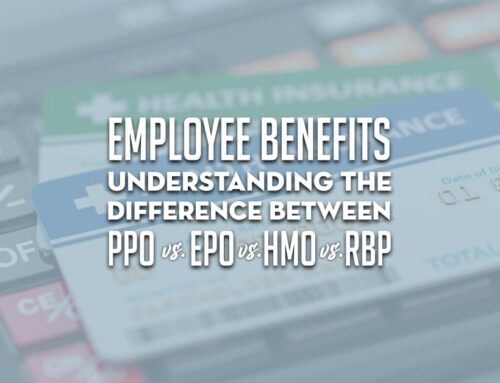Employing more than 47% of the private workforce, small businesses are the backbone of this country. In fact, employing chances today are that you are part of a small business. And like many startups and small businesses, health insurance is likely a topic of conversation around the office water-cooler, with the cost of health insurance plans being the focus.
It is important for every employee to realize that there was a time that every small business was in your shoes, and had to determine what to do for health insurance.
According to the Small Business Association (SBA) almost 50% of small businesses with 3-9 workers, 71% of small businesses with 10-24 employees, and 85% with 25-49 employees offer their employees health insurance benefits.
The Affordable Care Act stipulates that small businesses with fewer than 50 employees are not required to offer health insurance benefits to their employees or pay a no-coverage penalty to the IRS.
Especially in our present pandemic world, no matter the size of the employer, health insurance benefits are a big and important deal to employees. In fact, a 2020 survey of 2,000 people found that 84% put health insurance at the top of their most desired benefit list. Acknowledging that benefits are a major contributor to the ability of any company to secure longterm employees with talent and also that happy, healthy, cared-for employees are more loyal, productive, and complimentary to their business, health insurance plans for small businesses can be costly.
This article hopes to help small businesses to provide employee health insurance with tips regarding ‘How to Reduce Small Business Health Insurance Costs’.
In our modern world, fully-funded health insurance plans are the most common. These are the big guys like — Blue Cross Blue Shield, Aetna, Humana, United, etc.
The high cost and unpredictability drive many small businesses to look elsewhere. Self-funded plans are an alternative to traditional plans, and seem to be attracting small businesses across the country.
Relax…it is really rather easy to understand the difference between a fully-funded health plan vs. a self-funded health plan. A fully-funded health plan is sponsored by the insurance carrier rather than the employer.
The carrier assumes all risk and holds the policy. Your company pays a fixed monthly premium for the carrier to pay your employees’ claims, and manage/administer the plan for the small business.
No matter how many claims your employees make or how expensive those claims are, the carrier, not your company, are on the hook for paying them, or declining them.
While a fully-funded plan is predictable from month-to-month, it is highly unpredictable from year-to-year. You may know precisely what you will pay during an annual term, but there is no way to know what you will pay the following year.
If your company’s overall healthcare claims exceed what your carrier anticipated with their premium fee calculation, you can expect your rates will increase for the next year (and beyond) with insurance carriers trying to cover their 2021 Covid-19 costs and anticipating additional annual health insurance cost increases.
A self-funded health plan is sponsored by the employer instead of the insurance carrier. That means your company takes on all of the risk and pays their employees’ claims as they come in. Your company will also be responsible for managing and administering the plan. With a self-funded health plan the small business owner pays less when employee claims are low and more when they are high.
This may seem overwhelming, but there are significant cost advantages with a self-funded health plan. By eliminating the carrier, a small business is able to avoid markup fees, only pay for the healthcare that employees actually use, as well as get some tax advantages.
For even more protection against high claims costs, there is a type of self-funded health plan called a level-funded health plan. A level-funded plan includes stop-loss insurance to protect a small business from “catastrophic” claims that could overwhelm their budget.
Stop-loss insurance covers the overage above a set limit (a cap) that a small business would be required to pay. If claims are higher than your cap, the stop-loss insurance kicks in, and if claims are low, the small business receives a rebate to cover the difference.
Another benefit of some level-funded health plans is that your employees will not be required to choose “in-network” providers, no matter what type of plan they choose.
For instance, employees who want the least expensive plan with high deductibles do not have to sacrifice the ability to choose their own doctors and specialists. Giving your employees this flexibility is a great way to sweeten the benefits package that businesses with traditional health insurance simply cannot do.
The crucial truth about health insurance for small businesses is — the sooner, the better. The longer any small business waits, the greater the chance that business will lose good talent and hear office mumbling from people who wished their company offered health benefits. To keep morale high and build your brand reputation, health insurance benefits have to be a priority.
For assistance deciding what type of health insurance plan is best for the budget and employees of your small business, talk with Abbot Benefits Group, serving Houston, Tomball, Spring, Cypress and all of Texas, at https://www.abbotbenefits.com and 281-374-7577.
Because offering employees health benefits is one of the best investments small business owners can make.
Contact Abbot Benefits Group to learn more about your small business health care options for 2022 – https://www.abbotbenefits.com and 281-374-7577.





